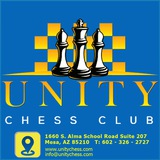📘 1.Nf1??
White could have the upper hand if he had played 1.c4!. As a result, black connected passed pawns could be blocked on b4 and c5 in the same color of black bishop.
1...bxc3!-/+
It seems that when white played 1.Nf1 he had missed that 2.Rxb5?? is not possible due to 2...Qa6! 3.Rb1 c2-+
White could have the upper hand if he had played 1.c4!. As a result, black connected passed pawns could be blocked on b4 and c5 in the same color of black bishop.
1...bxc3!-/+
It seems that when white played 1.Nf1 he had missed that 2.Rxb5?? is not possible due to 2...Qa6! 3.Rb1 c2-+
📘 44.Ra5? in an already losing position black made white's task even easier by missing the double attack 44...Qd8 0-1
📘 By playing 26...Qe6? 27.Rc4 +- in time trouble, black missed an opportunity to punish white's erroneous combination 26. Rxc5??
26...Ne6! 27.Rcc1 Qb7 28.Ne1 B×g2 29.N×g2 R×c1(or 29...Ng5) 30.R×c1 d3 -+
It is interesting that in the online broadcast analysis after the game black stated that he had a feeling that 26.Rxc5 is wrong, but in time trouble he could not manage to find the refutation!
26...Ne6! 27.Rcc1 Qb7 28.Ne1 B×g2 29.N×g2 R×c1(or 29...Ng5) 30.R×c1 d3 -+
It is interesting that in the online broadcast analysis after the game black stated that he had a feeling that 26.Rxc5 is wrong, but in time trouble he could not manage to find the refutation!
📘 56.Be4?
A blunder at the moment that white was so close to make a draw.
56...Qb5+ 0-1
A blunder at the moment that white was so close to make a draw.
56...Qb5+ 0-1
🔹🔺 The interesting and tactical moments of the Hoogeveen Matches 2017🔹🔺
📘 Wei Yi could not resist the temptation to sacrifice a rook on e3 that invites the white king to the middle of the board!
18...Rxe3? 19.K×e3 d4+ 20.K×d4
The invitation is accepted!
20...Re5 21.Bd3 Be6 22.Q×b7 Kg7 23.Ne4 Nd5 24.B×e5+ N×e5 25.Rc5 1-0
18...Rxe3? 19.K×e3 d4+ 20.K×d4
The invitation is accepted!
20...Re5 21.Bd3 Be6 22.Q×b7 Kg7 23.Ne4 Nd5 24.B×e5+ N×e5 25.Rc5 1-0
📘 30.Kf2?
A miscalculation from the Indian grandmaster.
30...B×b4 31.R×e1 Bc5!+ 32.Kf1 B×g2!+ 33.K×g2 R×e1 -+
Correct continuation was 30.R×e1 R×e1 31.Kf2 B×b4 32.K×e1 B×g2 with only slightly better chances for black.
A miscalculation from the Indian grandmaster.
30...B×b4 31.R×e1 Bc5!+ 32.Kf1 B×g2!+ 33.K×g2 R×e1 -+
Correct continuation was 30.R×e1 R×e1 31.Kf2 B×b4 32.K×e1 B×g2 with only slightly better chances for black.
📘 1.g5?! allows Nh5, while 1.Ng3 with the idea of g5 is not the sharpest option. The best attacking idea is to transfer the queen to the kingside by the typical 1.Qe1!
📘 1.e3 is a normal move that does not punish black's mistaken c5 on the previous move. 1.Nf3 seems solid but passive and closes Bg2. 1.Nd3! with idea of Nf4 and taking d5 leads to clear advantage for white.
In general Nf3-e5-d3-f4 is a typical maneuver in this pawn structure.
1.Nd3! cxd4 2.Bxf6! Bxf6? (2...dxc3 3.Bxc3 +/-) 3. Nxd5! +-
In general Nf3-e5-d3-f4 is a typical maneuver in this pawn structure.
1.Nd3! cxd4 2.Bxf6! Bxf6? (2...dxc3 3.Bxc3 +/-) 3. Nxd5! +-
